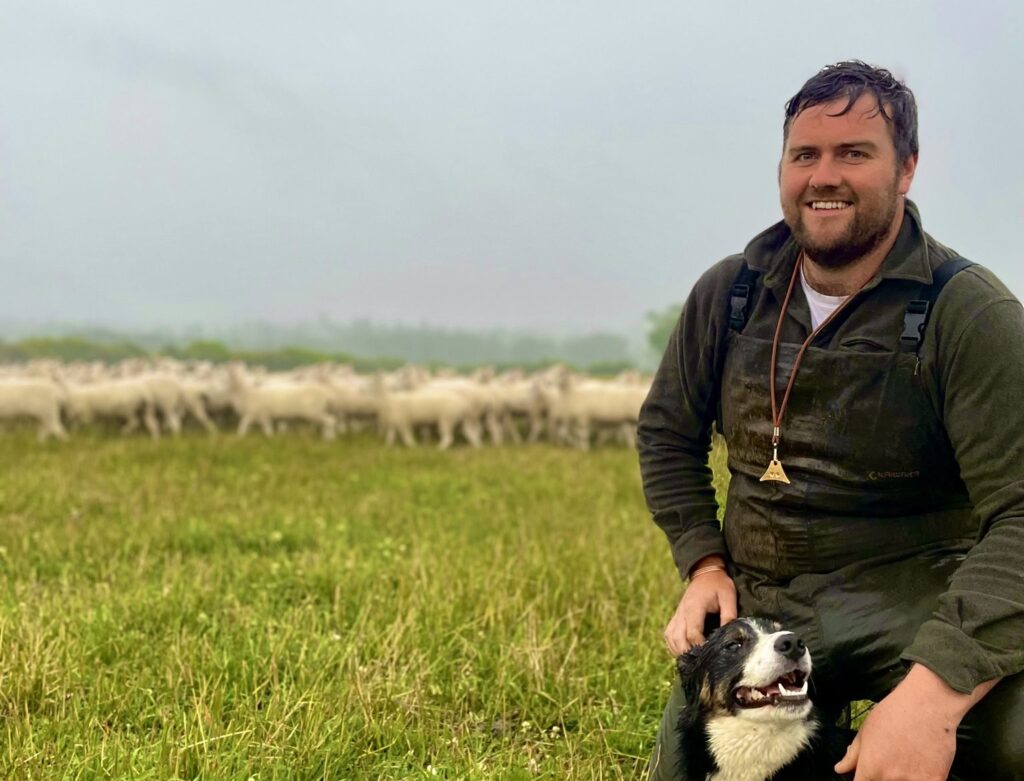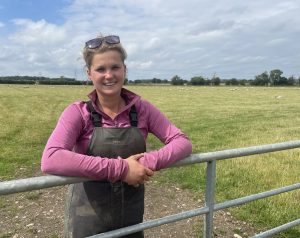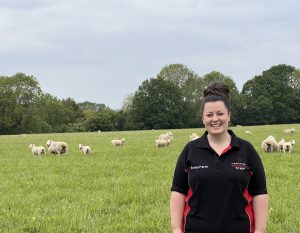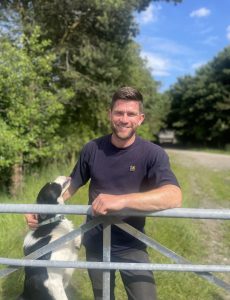As featured in Farm North East on 21 May 2022
Clarke Hibberd says the future of his Aberdeenshire sheep enterprise based at Sittyton, Newmachar is about managing an efficient ewe farmed in a low input, forage based sustainable system. “As a new entrant, I believe that’s got to be a blueprint,” he comments.
“I’ve built up a 600 ewe Highlander cross Lleyn flock; it’s low cost and easy maintenance thriving on grazed grass and forage crops. I don’t buy in any concentrate or fertiliser – I’m farming an organic unit,” he explains. “Last year the ewes scanned 185% and reared 172% lambs.
“These Highlander crosses make for tremendous sheep, nice compact 65kg ewes which enable relatively higher stocking rates, and they’re easy to keep which is really important since I take on a lot of work off farm,” explains Clarke who with support from his partner, Meg Morrison and daughter, Clova also manages a 1,000 store lamb contract finishing business with another producer and a 37,000 ewe shearing business with two colleagues.
“This season, literally 595 out of the 600 ewe flock lambed within the first 17 days, outdoors in late April and on to a flush of grass. Whilst I check them three times a day, they lamb themselves, the ewes are milky, demonstrate great motherability and instinctly take their lambs with them; they really do look after them.
“After the first 24 hours, I round up 100 ewes and lambs and introduce them to a set stocking system with six ewes and lambs per acre, where they remain for the season. The vast majority of wethers and ewe lambs not retained for replacement purposes reach 45kg target finishing weight within seven months.
“In lamb ewes are stripped grazed on 20 acres of turnips supplemented with mineral buckets from January through to April lambing. Yes, that is a lot of sheep on a relatively small area, however that’s the Highlander, she seems to have a relatively small maintenance requirement,” he explains.
Clarke is amongst the new entrants to the industry with a passion for sheep and says he was fortunate to be selected as one of NSA’s Next Generation Ambassadors before being elected a committee member of the NSA Scotland branch.
He initially gained five years of experience shepherding on a Scottish unit where he was introduced to the Highlander and began to realise its benefits before achieving an ambition to farm in his own right. Four years on, in 2021 he acquired his first tenancy with 100 acres at Sittyton, adding to the 200 acres he already rented across the county.
Key investments have included equipment which speeds up any process, allowing him to keep working off farm as much as possible. An electric fencer which mounts onto the quad bike has been a game changer, he says. “It allows fences to be put up and dismantled quickly, as well as using solar powered energisers to take away the fear and worry sheep will escape when the battery is flat.”
However, it’s thanks to an arrangement with Northumberland sheep producer, Duncan Nelless, that Clarke has been able to build up his Highlander cross flock. “I’m in my fourth year taking in between 350 to 450 Lleyn hoggs from Duncan and tupping them with the Highlander. In return I get to keep the lambs. I’ve retained the majority of ewe lambs, whilst the wethers are all finished. It’s been a great way for me to grow a flock without any investment.
“These hoggs are rearing 100% lambs which is all I want, they are weaned at 90 days and then I return their dams as shearlings in September in best condition – I’m paid a bonus for kilos gained.”
To the future Clarke says: “I’d like to keep going, expanding the flock with Highlander crosses however every year is different when it comes to land availability. I’ve recently had the opportunity to rent organic grazing to build up fertility in the rotation a head of a carrot crop.
“One of the main challenges has been competing with established farmers for tenancies and grazing, with rented land hard to come by especially for organic, as well as those changing practices to suit schemes and payments.
“Going forward, for me it is important my business is able to function without reliance on Government payments and I believe that’s going to be possible, once the initial investment in sheep and equipment has been paid off,” he says adding: “My biggest achievement as a new entrant was having everything fall in to place so I could finally go out on my own and work completely for myself. My ultimate goal is to secure my own farm.”



